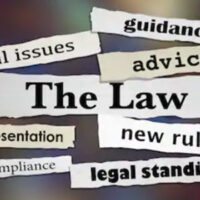What Are My Fourth Amendment Rights in Searches?

If you are stopped by the police or any other law enforcement official, you have certain constitutional protections against an unlawful, warrantless search under the Fourth Amendment. It is extremely important to know your rights. If you are subjected to an unlawful search in violation of the Fourth Amendment, and you are arrested for any offense or charged with any offense arising out of what law enforcement officials found in their search, you may be able to get the charges dropped and the case dismissed. An experienced Denver criminal defense lawyer at DeChant Law can tell you more about your Fourth Amendment rights as they pertain to unreasonable searches and seizures.
Fourth Amendment
The Fourth Amendment of the US Constitution reads:
“The right of the people to be secure in their persons, houses, papers, and effects, against unreasonable searches and seizures, shall not be violated, and no warrants shall issue, but upon probable cause, supported by oath or affirmation, and particularly describing the place to be searched, and the persons or things to be seized.”
What does this language mean in practice? Generally speaking, law enforcement officials must either have a valid warrant or “probable cause” to conduct a search of a person or their property (although there are some exceptions that your defense lawyer can discuss with you to ensure that they do not apply to your case). If law enforcement officials have neither a warrant or “probable cause,” then a search and any accompanying seizure of property is unlawful.
Exceptions to Know About
There are a handful of exceptions to the Fourth Amendment requirement that law enforcement officials have a warrant or probable cause to conduct a search. Some of the most common exceptions include the following:
- You gave consent to the search;
- Contraband was in plain view;
- Search occurred incident to arrest; or
- Exigent circumstances existed.
It is critical to understand the “consent” exception and what this means for you. If the police ask you for consent to search your home, your vehicle, your person, or any other property, and you give consent, then the search is lawful even if there is no probable cause and no warrant. The key takeaway from this information is: you never have to consent to a search. If the police ask you if they can perform a search, you can say no. Unless they have a valid warrant or probable cause, any search after you do not give consent may be unlawful.
Contact a Denver Criminal Defense Lawyer
If you were arrested after a traffic stop that involved a search, or arrested in any other location due to what law enforcement officials found in a search of your property or your person, it is essential to determine if the search was lawful. When an unlawful, warrantless search occurs in violation of the Fourth Amendment, anything obtained directly from the search or because of what was found in the search cannot be used against you in a prosecution.
One of the experienced Denver criminal defense lawyers at DeChant Law can speak with you today to learn more about the facts and circumstances surrounding your arrest, and we can determine whether it may be possible to build a defense against the charges you are facing based on a Fourth Amendment violation. Contact us today for more information about the defense services we provide in Denver, Colorado.
Sources:
constitution.congress.gov/constitution/amendment-4/
constitution.congress.gov/browse/essay/amdt4-4-2/ALDE_00000783/
